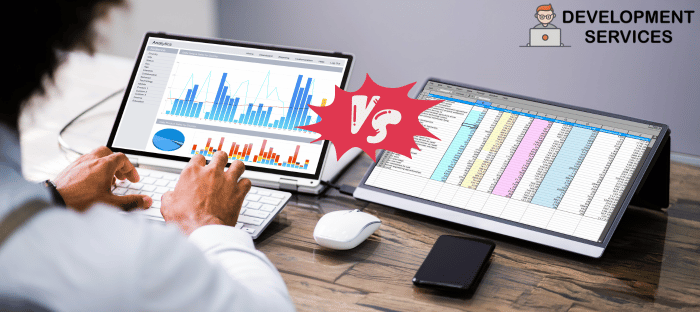
As businesses evolve and expand, their methods for managing customer interactions and data need to keep pace. Many organizations start with a simple spreadsheet system, but quickly discover that this method has limitations, especially as data volume and complexity grow. The solution? A Customer Relationship Management (CRM) system. Let’s take an in-depth look at why moving from a spreadsheet to a CRM is essential for your business.
What is a CRM?
CRM stands for Customer Relationship Management, which is a technology for managing a company’s relationships and interactions with potential and current customers. CRM systems help businesses stay connected to customers, streamline processes, improve profitability, and enable significant business growth.
Spreadsheets: The Basics
Spreadsheets are often the first choice for businesses that need to track and manage customer data. Spreadsheets are accessible, familiar, and require little to no training. They work well for small businesses with minimal customer data and simple sales processes.
However, as your business grows and your customer data expands, spreadsheets can quickly become overwhelming. They lack advanced features, such as real-time updates, detailed customer profiles, and task automation, which can lead to inefficiencies and missed opportunities.
Spreadsheets vs. CRM Systems: The Major Differences
- Scalability: Spreadsheets are not designed to handle vast amounts of data. As your customer base grows, you’ll need to add more rows, columns, and sheets, making your spreadsheet more difficult to navigate and manage. On the other hand, a CRM system is designed to handle thousands, if not millions, of records. It can quickly scale to meet your business’s growing needs.
- Accessibility and Collaboration: With spreadsheets, multiple users cannot work on the same file simultaneously, which can lead to version control issues and data loss. However, a CRM system allows multiple users to access and update records simultaneously, promoting real-time collaboration.
- Automation: A CRM system can automate various tasks such as scheduling follow-ups, sending emails, and generating reports, which can save time and increase productivity. Conversely, spreadsheets do not have these automation capabilities, which can lead to manual, time-consuming processes.
- Customer Segmentation and Personalization: CRM systems allow you to segment your customers based on various criteria and personalize your interactions with them, thereby improving customer engagement and satisfaction. Spreadsheets, however, lack these capabilities.
- Reporting and Analytics: While you can perform basic data analysis using spreadsheet functions, it doesn’t come close to the advanced reporting and analytics capabilities that a CRM system provides. CRM systems can generate real-time, insightful reports and dashboards, enabling you to make data-driven decisions.
Why Your Business Needs a Dedicated CRM System
A dedicated CRM system brings many benefits to your business, such as:
- Improved Customer Relationships: With a CRM, you can keep track of your customers’ history with your company, their preferences, and their concerns. This knowledge can help you build strong, long-lasting relationships with your customers.
- Increased Efficiency: CRM systems can automate various repetitive tasks, enabling your team to focus on more important tasks such as closing deals and addressing customer issues.
- Enhanced Decision Making: CRM systems provide a wealth of data and reporting tools that can help you understand customer behavior, identify trends, and make informed business decisions.
- Scalability: CRM systems can grow with your business. Whether you’re adding new customers, launching new products, or expanding to new markets, your CRM can handle it all.
- Better Team Collaboration: With a CRM, your team can collaborate more effectively. They can share customer information, track progress, and work together to meet customer needs and company goals.
- Superior Data Security: A CRM system provides robust security measures, such as encryption and user authentication, to protect your customer data.
While spreadsheets are a good starting point for managing customer data, they quickly become inadequate as your business grows. A dedicated CRM system can scale with your business, streamline your operations, and help you build better relationships with your customers. By investing in a CRM system, you’re investing in the future of your business.